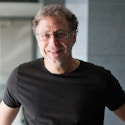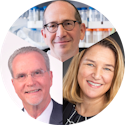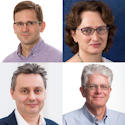On 25 January 2017, Jeremy Veenstra-VanderWeele outlined critical challenges to translating genomic, cellular, and animal model research into new treatments for autism spectrum disorder.
His talk was part of the Simons Foundation Autism Research lecture series.
About the Lecture
Emerging genomic and neuroscience findings have delivered hypotheses that are now being tested in autism spectrum disorder (ASD) and related genetic syndromes. Unfortunately, these clinical trials have not yet yielded positive results, suggesting a need to step back and evaluate the science of testing new treatments for neurodevelopmental disorders.
In this lecture, Jeremy Veenstra-VanderWeele outlined critical challenges, both conceptual and practical, to translating genomic, cellular, and animal model research into new treatments for ASD. He discussed the limitations to conclusions drawn from work in the laboratory as they are extrapolated to the clinic. He also described common pitfalls in clinical trials, including mismatches between hypotheses and study populations, substantial “placebo” effects, and subjective outcome measures. Framing these challenges in the context of past successes in ASD treatment research, he suggested guideposts as we work toward neurobiologically based treatments for ASD.




